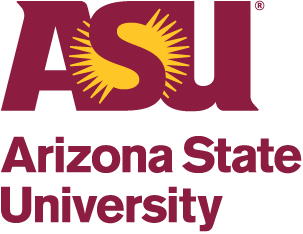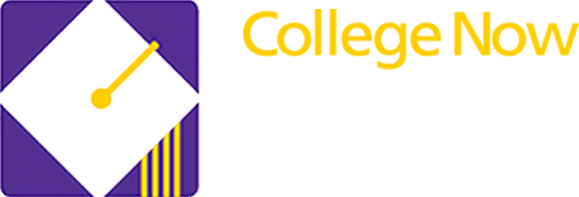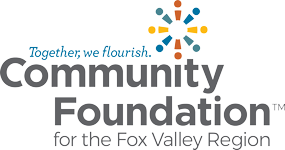
$3,000 Community Action Grants

American Association of University Women Educational Foundation
American Association of University Women Educational Foundation is offering Community Action Grants
At a Glance
Award Amount:
💰 $3,000
Deadline:
-442 days left
Tags:
Application
What is needed to apply for the $3,000 Community Action Grants?
Estimated time to complete:
⏰ 5 minutes
| 📋 Application Form | ✅ Required |
| ✍️ Essays | None |
| 💌 Letters of Recommendation | None |
| 📨 Resume | None |
| 🎓 Transcript | None |
| 🎨 Portfolio | None |
| 📸 Photos | None |
| 🧑🏫 Nomination | None |
Eligibility Requirements
Who is eligible to apply for $3,000 Community Action Grants?
Requirement | Criteria | Are you eligible? |
|---|---|---|
📚 Majors | 🚀 Engineering Major | |
📍 Locations | 🇺🇸 United States 🇺🇸 Alabama |
Provider Details
Who is providing the $3,000 Community Action Grants?
Field | Details |
|---|---|
| Contact Name | — |
| Address | 1310 L St. NW, Suite 1000, Washington, DC 20005 |
| Show email address | |
| Phone | Show phone number |
| Website | — |
| College or University? | — |

American Association of University Women Educational Foundation
By December 1st, 2024
Share this scholarship:
How do you apply?
Visit the scholarship provider's website to fill out an application form.
Apply for this scholarshipBy December 1st, 2024
👉 Please reference you found the scholarship on Scholarships That Work, this helps us get more scholarship providers to post here, thanks!
When applying for scholarships, you should NEVER have to pay to apply. You should also NEVER have to provide sensitive personal information like your Social Security Number (SSN). If membership is required to apply, the membership should ALWAYS BE FREE. Basically, NEVER PAY FOR ANYTHING. Those are scams! Some scholarships may ask for your address or proof of enrollment. That's fine, but always verify you're actually talking to the scholarship provider and not an imposter. Scams in scholarships are rampant, be careful! When clicking on the button to apply, you will leave Scholarships That Work and go to the application page for that organization outside this site. Scholarships That Work accepts no liability or responsibility as a consequence of any reliance upon information listed here or linked external sites.

Thurgood Marshall College Fund (TMCF)

American Psychological Foundation

Humboldt State University

The Austin Community Foundation

Arizona State University
Fitchburg State University
Hillsborough Education Foundation
Boise State University

Henderson State University

Cleveland Foundation

Augusta University
National Louis University

Life Coach Spotter
The Troy Foundation

International Association for Great Lakes Research

Coastal Community Foundation of South Carolina

Lawn Love Lawn Care
The Troy Foundation

Sioux Falls Area Community Foundation

Community Foundation for the Fox Valley Region, Inc.
Phelps County Community Foundation
Phelps County Community Foundation
Frequently Asked Questions
What is the Community Action Grants Scholarship?
The Community Action Grants Scholarship is a Engineering and $3,000+ award in Alabama, Alaska, Arizona, and more. Community Action Grants provide funding to individuals, AAUW branches and AAUW state organizations as well as community-based nonprofits for innovative programs that promote education and equity through projects focused on encouraging girls to select, before entering college, the physical sciences or engineering as a career. Since 1972, AAUW has provided support to hundreds of communities across the United States. Regulations Funds are available for, but not limited to, project-related expense categories, including: Postage, mailing, shipping. Photocopying, duplicating. Office supplies. Audiovisual materials. Project-related telephone costs. Professional fees or honoraria for speakers or special consultants. Equipment purchases. Meals, food, beverages, or lodging for camps or related activities. Temporary, hourly clerical help. Lease of facilities (does not include permanent office space). Advertising, publicity, graphic design. Transportation (should be no more than one-third of grant request; $0.545 per mile for auto expenses). Funds are not available for the following: Salaries or stipends for project directors or permanent positions. Tuition. Higher education scholarships for students and participants. Building funds, construction, or renovations. Travel expenses for activities not within the scope of the project. Overhead or general operating expenses for any organization or nonprofit organization. Personal expenses, shelter, or life, medical and health insurance. Previous expenditures, deficits or loans. Creating or providing grants to other organizations. Copyright or attorney fees. Fundraising activities. AAUW regards the acceptance of a grant as a contract requiring fulfillment of the following terms: All grant recipients must sign a contract accepting the award. Retain these instructions, as they will become part of the grant contract if the applicant is awarded a grant. Grant awards are distributed in two equal payments, the first at the beginning of the grant period and the second at the midpoint. The Community Action Grant project director must be in an active leadership role, controlling programmatic, fiscal, and editorial responsibility for the project. The project director cannot be paid with Community Action Grant funds for work on the project and the project director’s employer cannot be reimbursed. Projects may be awarded only once. Former Community Action Grantees may propose new activities for future grants after waiting three application cycles but cannot reapply for the same project for which they received funding in the past. If eligible, an applicant may apply to more than one AAUW grant or fellowship program simultaneously. If awarded in more than one program, the applicant may accept only one award. AAUW is a nonprofit, tax-exempt 501(c)(3) public charity founded for educational purposes. Thus all proposed Community Action Grant activities must correspond to that mission. Specific questions regarding income tax matters should be addressed to the Internal Revenue Service (IRS) or to the applicant’s personal tax adviser. Grant projects may not seek to influence new or pending legislation or favor a particular political candidate or party. Grant projects must be nonsectarian and may not seek to promote a particular religion or denomination. religion or denomination. Required Components Start by clicking on the link to access the application and create an account through our vendor site. Complete all required components in the following areas. Eligibility. Applicants must pass the eligibility quiz to be reviewed by the selection panel.. Project Director. Project. Uploads. An Organizational Summary Form and Statement of Commitment are required for: All applicants applying as nonprofit organizations (including universities) and all AAUW branches. All organizations that will act as collaborative partners on this project. The Organizational Summary form will be available in the application. The statement must include two paragraphs that outline the collaborating organization’s commitment to the project in terms of time, personnel, facilities, monetary support, etc. Statements must be written on organizational letterhead. Nonprofit applicants (including universities) must submit proof of 501(c)(3) tax-exempt status (i.e., an IRS determination letter). AAUW branch or state organizations applying for funds must be 501(c)(3) or 501(c)(4) and must submit proof of status. Demographics. Narratives. Abstract: Briefly describe the proposed project. Identify the target audience, goal of the project, anticipated outcomes, and relevance of the project to AAUW’s mission. (600-character limit). Project rationale (need statement): Provide evidence of need for the project. Describe the community served by the project, the problem being addressed, and the reason for initiating the project. Emphasis should be on community needs, not a general research need. (1,200-character limit) Project description (anticipated outcomes): Identify the goal and anticipated outcomes of the project. The outcomes should be SMART: specific, measurable, achievable, realistic, and timely. Describe the methods you plan to use to achieve these outcomes. Explain how the proposed project will meet the needs of the target audience in an original and/or innovative way. (2,000-character limit) Implementation plan: Outline the project time line and list planned activities or events according to the time line. Explain how the implementation plan will lead to desired outcomes. Explain how you plan to recruit participants (if applicable) and share information about the project with your community. (2,000-character limit) AAUW involvement and collaborations: Based on the timeline above, describe the AAUW coalition and collaborators that will support the implementation plan. Explain why the coalition is appropriate for the project and if organizations other than AAUW will be involved (Organizational Summary and Commitment forms from collaborators must be sent as supporting documents). (1,200-character limit) Evaluation plan: Explain how you plan to evaluate the effectiveness of the project. Outline the specific strategies you have used and plan to use to determine if you have achieved the anticipated outcomes outlined in your proposal. Explain why the evaluation method you plan to use is appropriate for the project. (2,000-character limit) Dissemination plan: Describe how you plan to disseminate information about the results and impact of the project. Provide a detailed plan for how and when the dissemination will occur. (2,000-character limit) Impact/outreach: Describe the anticipated long-term impact of the project. Explain how the project will reach underserved audiences and build connections with diverse individuals and organizations. Explain why the project has potential for sustainability after the grant period ends. (2,000-character limit) Qualifications of the project director and staff: Identify the person responsible for the project and other relevant leadership staff. Briefly outline the experience, education, and skills that qualify them to direct the project. In addition, list other staff and individuals who will work on the project. Describ their roles and qualifications. (2,000-character limit) Organizational capacity: Briefly describe the branch, organization or individual’s capacity to carry out the project. What other projects have they planned and implemented that have prepared them to carry out this project? For AAUW branch or state projects, how will the project promote AAUW branch/state growth? (2,000-character limit) Project budget: An itemized budget for the project must be included. Project budgets should reflect the costs that will be incurred during the grant period. Budget narrative: Applicants must justify and explain each listed expense and include in-kind support and other sources of funding. Be sure to describe the relationship of the expense to the desired outcome of the project. Strong budget proposals include in-kind contributions and funds from other sources.
Who is providing the Community Action Grants Scholarship?
The American Association of University Women Educational Foundation is providing the Community Action Grants Scholarship to students this year.
Who is eligible to apply for the Community Action Grants Scholarship?
All students who live or attend school in Alabama, Alaska, Arizona, and more are eligible to apply for the Community Action Grants Scholarship.
How much is the Community Action Grants Scholarship worth?
The Community Action Grants Scholarship offers students a $3,000 award.
How can I apply for the Community Action Grants Scholarship?
You can apply for by filling out the application form on the Community Action Grants Scholarship's website, which is linked above.
When is the application deadline for the Community Action Grants Scholarship?
December 1, 2024 is the final due date to apply for the Community Action Grants Scholarship.
How do I get more information about the Community Action Grants Scholarship?
You can find application requirements, eligibility criteria, award amounts, and more on Scholarships That Work, or by visiting the provider's website: undefined.
Scholarships by Major
Scholarships by County
Scholarships by State
Scholarships by Country
Scholarships by Degree Type
Scholarships by Grade Level
Scholarships by Award Amount
Scholarships by Disability
Scholarships by Medical Condition
Scholarships by Religion
Scholarships by Identity
Niche Scholarships
Scholarships by GPA
Scholarships by SAT Score
Scholarships by ACT Score
Scholarships by Age
© 2026 Scholarships That Work. All rights reserved.
Registration on or use of this site constitutes acceptance of our Terms and Privacy Policy.

